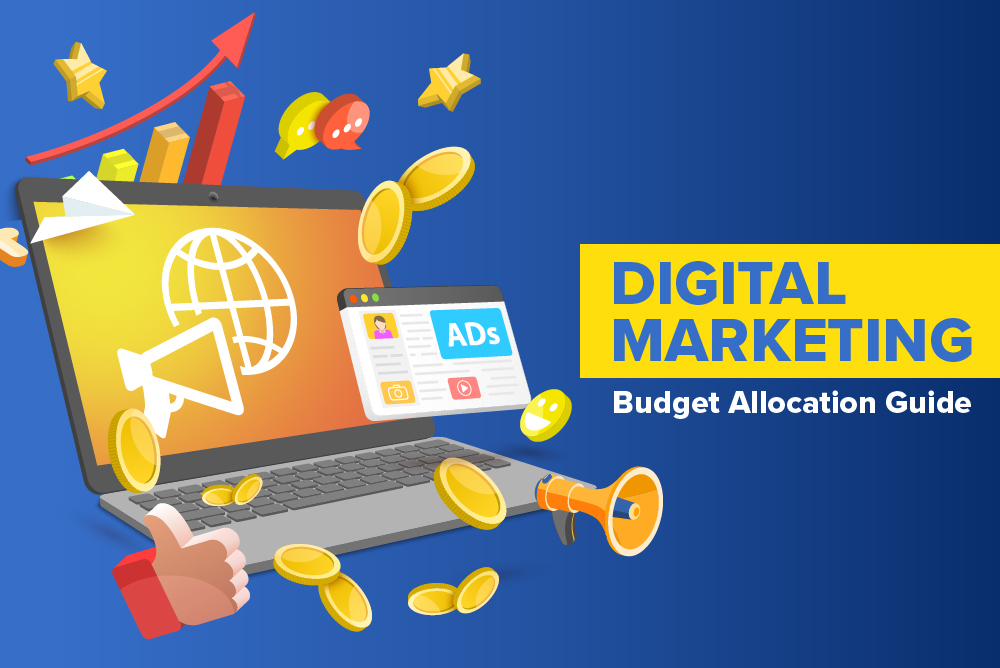Digital marketing in the hospitality industry is a crucial tool for businesses looking to enhance their online presence and reach a broader audience. It is especially beneficial for hotels, resorts, restaurants, and other hospitality establishments aiming to connect with potential guests and customers in the digital realm. By leveraging digital marketing strategies such as search engine optimisation (SEO), targeted online advertising and creating the best social media campaigns, businesses can effectively promote their services, engage with their audience, and ultimately drive bookings and revenue. This approach is not limited to large enterprises; even smaller establishments can benefit from cost-effective digital marketing initiatives to compete in the competitive hospitality landscape.
Who Can Benefit From Digital Marketing In The Hospitality Industry?
Let’s explore which businesses can benefit from digital marketing in the hospitality industry:
1. Hotels and Resorts
Large hotel chains and luxury resorts continue to be prime candidates for digital marketing strategies. By employing comprehensive SEO practices, creating visually appealing content, and utilising online advertising channels, these hospitality businesses can enhance their online presence. A global hotel brand, for instance, might leverage paid search advertising to promote exclusive offers, ensuring it remains competitive in the digital marketplace.
2. Independent Boutique Hotels
Smaller boutique hotels, known for their distinctive charm, can carve out a niche in the digital realm. Utilising platforms like Instagram and Pinterest, they can showcase their unique features and connect with a more selective audience. An independent boutique hotel with a wellness focus might create content highlighting its spa services and yoga retreats, resonating with health-conscious travellers.
3. Restaurants and Cafés
Digital marketing is equally relevant for restaurants and cafés looking to attract diners. Leveraging social media platforms, these hospitality businesses can engage with their community, share mouthwatering visuals, and promote special events. A health-conscious café, for example, can use Instagram to showcase its nutritious menu items, appealing to customers seeking wellness-focused dining options.
4. Event Spaces and Conference Centres
Venues hosting events and conferences can harness digital marketing to target event planners. Utilising platforms like LinkedIn and email marketing, these hospitality businesses can showcase their facilities and services. A wellness retreat centre might use targeted LinkedIn ads to reach corporate event planners interested in organising wellness-focused team-building retreats.
5. Travel Agencies and Tour Operators
Digital marketing remain pivotal for travel agencies and tour operators within the hospitality sector. These entities can engage potential travellers through compelling content and collaborative efforts with influencers. A wellness travel agency might partner with wellness influencers to create content promoting rejuvenating spa retreats and holistic travel experiences.
6. Health and Wellness Centres
Health and wellness centres can significantly benefit from a strategic digital marketing approach. Utilising content marketing, social media, and email campaigns, these hospitality centres can promote their services and attract individuals seeking well-being solutions. A holistic wellness centre, for instance, can create informative blog posts on holistic living, share mindfulness tips on social media, and offer exclusive promotions via email to engage with their target audience.
Why Digital Marketing Is Important For The Hospitality Industry?

Hospitality is a dynamic and competitive industry. To stay ahead, businesses must adapt and innovate, using the best tools available. Digital marketing is one such tool, offering a range of benefits that can drive significant value for businesses in this sector. Here are some reasons why digital marketing is essential for the hospitality industry.
1. Enhanced Online Visibility and Reach
Digital marketing empowers hospitality businesses, from hotels to restaurants, to expand their online footprint. Through search engine optimisation (SEO) techniques, businesses can optimise their online presence, ensuring they appear prominently in search results. This increased visibility broadens the reach, attracting a diverse audience of potential customers.
2. Cost-Effective Promotion and Advertising
Traditional advertising channels often come with a hefty price tag, making it challenging for smaller hospitality establishments to compete. Digital marketing provides a cost-effective alternative. Social media platforms, email marketing, and pay-per-click (PPC) advertising allow businesses to tailor their campaigns to their budget, reaching a targeted audience without breaking the bank. Moreover, understanding when PPC fits into your digital marketing strategy can be a game-changer, allowing you to allocate resources effectively and maximise the impact of your online campaigns.
3. Engagement and Relationship Building
Digital marketing facilitates direct engagement with customers. Through social media platforms, hospitality businesses can interact with their audience, respond to inquiries, and build meaningful relationships. Establishing a rapport with customers fosters loyalty, encouraging repeat business and positive word-of-mouth marketing.
4. Data-Driven Decision-Making
One of the standout advantages of digital marketing is the wealth of data it generates. Analytics tools provide valuable insights into customer behaviour, preferences, and the effectiveness of marketing campaigns. This data-driven approach allows hospitality businesses to refine their strategies, ensuring they resonate with their target audience.
5. Targeted Marketing for Personalisation
Digital marketing enables hospitality businesses to deliver personalised content and offers to specific demographics. For instance, a hotel can tailor its email campaigns to promote spa services to wellness enthusiasts and family packages to those travelling with children. This targeted approach increases the relevance of marketing efforts, driving higher conversion rates.
6. Real-Time Feedback and Adaptability
In the fast-paced digital landscape, feedback is instantaneous. Businesses can monitor online reviews, social media comments, and customer feedback in real-time. This allows them to adapt quickly, addressing concerns, capitalising on positive feedback, and staying agile in response to market trends.
7. Competitive Edge in the Digital Era
As consumer behaviour shifts towards online platforms, hospitality businesses that embrace digital marketing gain a competitive edge. Those who invest in a robust online presence, SEO strategies, and engaging content are better positioned to capture the attention of tech-savvy travellers and diners, staying ahead in a competitive market.
Navigating Challenges In Digital Marketing For The Hospitality Industry

1. Dynamic Online Landscape
The digital landscape is ever-changing, with search engine algorithms, social media trends, and consumer behaviour evolving rapidly. Staying abreast of these changes is challenging for businesses in the hospitality industry. Regular updates to digital marketing strategies are essential to adapt to the shifting online environment.
2. Intense Competition
The hospitality industry is fiercely competitive, and the online space amplifies this competition. Standing out amidst a sea of options requires a well-defined digital marketing strategy. Differentiating a hotel, restaurant, or wellness centre from competitors necessitates creativity, unique value propositions, and constant innovation.
3. Managing Online Reputation
Online reviews and social media comments can significantly impact the reputation of hospitality businesses. Negative reviews spread quickly and can deter potential customers. Managing online reputation through digital marketing requires vigilance, prompt response to feedback, and proactive efforts to showcase positive aspects of the business.
4. Adapting to Mobile-First Trends
As more users access the internet through mobile devices, hospitality businesses must optimise their digital presence for mobile platforms. Mobile-friendly websites, responsive design, and mobile-centric marketing strategies are essential for reaching and engaging with the growing number of users who primarily use smartphones and tablets.
5. Balancing Personalisation with Privacy Concerns
While personalisation is a key aspect of effective digital marketing, there is a fine line between customisation and intrusiveness. Hospitality businesses must navigate privacy concerns and ensure they collect and use customer data responsibly. Striking the right balance is crucial to maintaining customer trust.
6. ROI Measurement and Analytics Complexity
Measuring the return on investment (ROI) for digital marketing efforts can be challenging due to the complexity of analytics and the multifaceted nature of customer journeys. Hospitality businesses must invest in robust analytics tools and strategies to track and optimise their PPC campaign for higher ROI.
7. Cybersecurity Risks
With the increased reliance on digital marketing and platforms, cybersecurity is a paramount concern. Hospitality businesses deal with sensitive customer data, and a data breach can have severe consequences. Implementing robust cybersecurity measures and staying vigilant against cyber threats is imperative for safeguarding both customer information and the business’s reputation.
Embrace The Power Of Digital Marketing For Your Hospitality Business With First Page

As we navigate the world of digital marketing in the hospitality industry, it becomes evident that strategic online initiatives are indispensable for success. Whether you’re a boutique hotel, a renowned resort, or a wellness centre, embracing digital marketing opens doors to a world of opportunities. To embark on this transformative journey, consider partnering with the industry’s top digital marketing experts such as First Page, one of the best digital marketing agencies in Singapore. First Page specialises in a spectrum of services, including search engine optimisation (SEO), social media marketing, Google Ads and more. By entrusting your digital marketing endeavours to First Page, you’re not just investing in services; you’re investing in a pathway to heightened visibility, engagement, and ultimately, unparalleled success.
Elevate your hospitality business with the digital marketing expertise of First Page and step confidently into a future where excellence defines your brand.

















